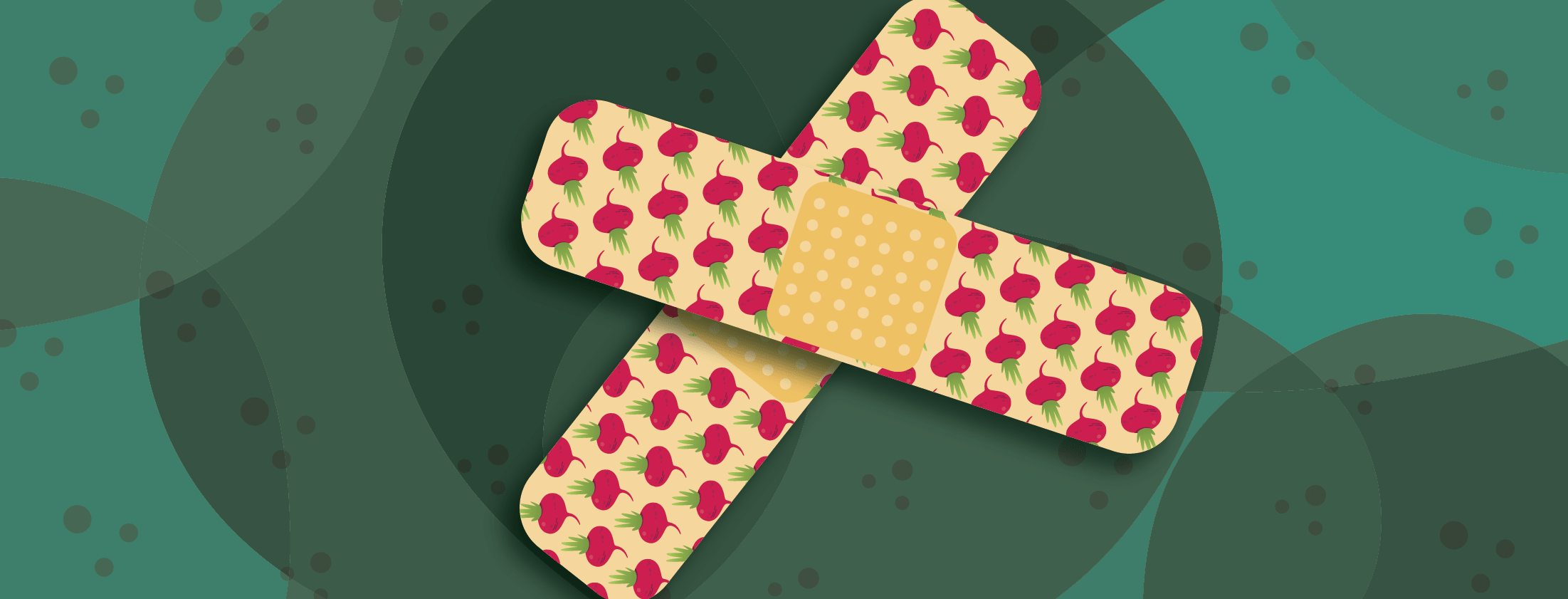Healing Beets
Dr. Terry Wahls, creator of the Wahls Protocol, discovered the combination of eating nine cups of vegetables every day to be healing for the body. She, personally, has reversed the symptoms of her progressive multiple sclerosis, and has helped many others to do the same.
Dr. Wahls breaks the nine cups down to:
- 3 cups leafy Green
- 3 deeply colored
- 3 sulfur-rich
The deeply colored vegetables are ones that intrigued me the most. For the first time, it made the distinction of those vegetables that are colored just on the skin – like an apple or banana – versus those that are colored through to the core. It seems kind of obvious, but I never paused to think about the nutritional differences between the two.
The distinction (aside from the obvious color differences) is what the colors represent: different phytochemicals such as antioxidants, vitamins, and minerals.
Research has found that antioxidants, in particular, can reduce endometriosis-related pelvic pain.1 According to the study, within just eight weeks of taking antioxidant supplementation, there was a significant reduction in the levels of inflammatory markers in women with endometriosis.1
I take two things away from this study.
- Oxidative stress – the body’s ability to contain free radicals – likely impacts endometriosis.
- Increasing my intake of antioxidants can help to counteract those effects.
Knowing that food sources tend to be more effective on the body than supplements, it’s certainly motivating in my opinion to explore antioxidant-rich foods.
Antioxidants
I know that berries are rich in antioxidants and I do enjoy them in smoothies, salads, and as dessert frequently, but what other foods are antioxidant-rich?
Beets
In general, red vegetables are rich in lycopene and anthocyanin, which can do everything from fight infection to protect the liver and reduce inflammation. Beets are also rich in betalains, which may help to better fight off inflammation-related chronic disease. Because of their fiber-rich nutrition profile, these root vegetables may also improve digestive health. Fiber is what enables waste to move through the digestive tract and ultimately out of the body.
Eliminating at least once a day, but ideally twice a day, is important for overall health – but especially if you have a pre-existing health challenge. Elimination – pooping – is what enables toxins to leave your body. Without it, well, you may be full of...
I know after learning the details of this, it’s certainly having me reconsider how frequently these powerful and healing vegetables are on my weekly menu.
How to enjoy beets
You can have beets:
- Juiced
- Roasted
- In soups
- Dried as chips
- Even as a powder
P.S. If you haven’t had beets before or recently, just a friendly reminder, they may discolor your urine or your stool. Don't be alarmed.
Do you have any of your own dietary tips? Share them here!

Join the conversation